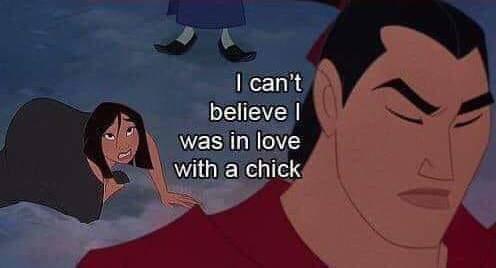You will take this nonsense and you will love it.TV-MA
Last active 4 hours ago
Don't wanna be here? Send us removal request.
Text
Not nearly enough talk on this website about the other lesbian couple on Hacks

400 notes
·
View notes
Text
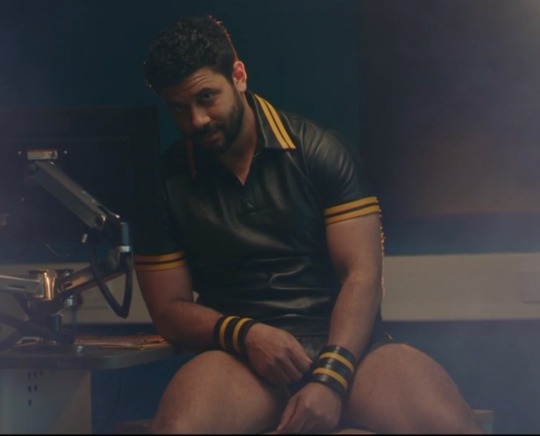

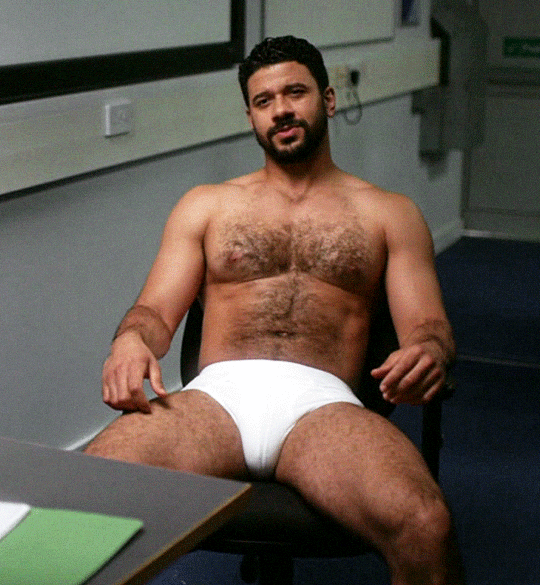
Robert Gilbert in leather and underwear in Big Boys
419 notes
·
View notes
Text
I can’t believe that Matt Murdock, Karen Page, and Frank Castle had an onscreen threesome in the season one finale of Daredevil: Born Again…
2K notes
·
View notes
Text
never kill yourself. may grant back on 911.
440 notes
·
View notes
Text
everyone. it's been a pleasure going to buddie canon with you. a genuine fucking pleasure.
928 notes
·
View notes
Text
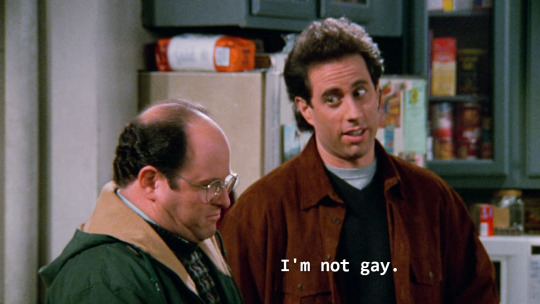
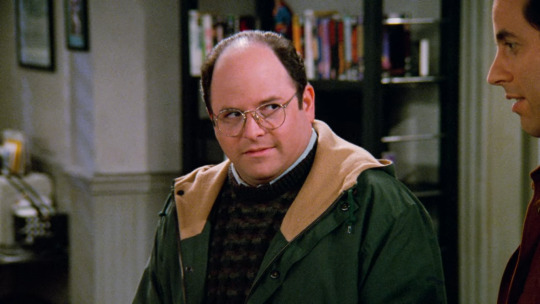

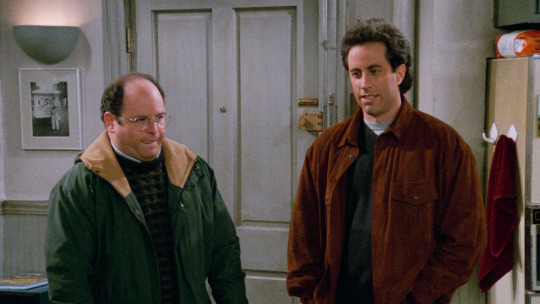
whatever show the girlies are obsessed with nowadays will never have as much sexual tension as this
13K notes
·
View notes
Text
Mad Men's "Othered" Woman
by Jené Gutierrez
Before watching this latest episode of Mad Men, I came across friends’ tweets and posts about it, one of whom referred to this episode as “disgusting.” Naturally intrigued, I could see the nature of this “disgust” reveal itself right from the start of the episode, during Pete and Ken’s meeting with Herb. What transpired during this episode (aptly titled “The Other Woman” ) posits multiple questions about the Othering of the female, especially within the framework of consumerism and commodity culture. Specifically, I would like to address the “disgust” my friend was probably referring to: Joan’s sexual economy, but I would like to discuss its relationship with Megan and Peggy’s careers, and the triad this creates.

How “disgusting” is it that Joan, who initially seemed well, disgusted, at the idea of sleeping with a client to gain their business, decided that there is a price connected with her body? What does it mean that she accepted a generous amount of money and investment in the company in exchange for a night of sex with a client? Why is it that some of us feel “disgust” at watching this occur? This is Mad Men, so this episode is more than just shoving 60s sexist mentality in our faces.
For me, it had me asking about the larger picture of sexual economics. Clearly, we see that Megan’s “success” as an actress is just as connected with her body as with her talent; the men she auditions for are inspecting a potential “product” for their stage and Megan is physically and sexually objectified; the juxtaposition of her character with her friend, who is literally cat-walking creative’s table while Megan seduces Don in his office, speaks to the objectifying nature of stage performance. While seducing him, Megan tells Don she wants to have confidence when she goes into the audition. Here she affirms the experience of sex as something positive, something which makes her feel strong and powerful. Surely this is also connected with her ability to seduce Don on the spot, wearing something that sexually objectifies her body, something that she thinks will help her land an audition.

Perhaps Joan, too, is not a stranger to the power involved in sexual exchange. Sexual exchange can involve money, but when it doesn’t, something is still being exchanged. Usually this is something intangible, such as pleasure or power. In fact, any communication between people involves an exchange, such as the “selling” of an idea or story, for even something as simple as where to eat for lunch. For me, I typically like to offer up jokes and humor in exchange for a smile or laugh. I am also producing this essay, in the hopes of exchanging it for the affirmation or validation of my ideas. The roles we play and masks we wear while interacting with other people in our day to day lives speaks to this very nature of exchange.
Megan was not picked for the role, her talent and physical body (which seemed more important to the men watching her and to the producers of the show) were not adequate enough for them. She has the power to seduce Don with her charm and looks, but not the men choosing if she performs.
This leads me to Peggy. In this episode, Peggy’s physical body is not sexually objectified in any obvious way. While Joan “succeeds” in the acquisition of more money and power using her body and brain, and while Megan’s “power” is intimately tied up with her relationship to Don (she would not be able to pursue this career and not work without his monetary help), Peggy seems to be the only woman truly financially independent of men. Because of this, she decides to leave Sterling Cooper Draper Pryce; however, her decision is not solely monetarily based. She would not accept more money from Don to stay at the firm. This is an interesting juxtaposition with Joan, who could be persuaded to have sex with a detestable client for the right amount of money. Peggy does not seem to even want to accept a position at SCDP for any amount of money. The price of proper respect and recognition for her talents outweigh any amount of money they would offer her.
But will things be different at this new firm? How much influence will she have, how much respect and recognition will she gain there? No matter where she goes, there will always be someone with more power than her. Being employed means your employer gives you money in exchange for something of yours that they want. For Peggy, it is her creative talent. But her talent will be subjected to the power of the firm, and it always will. She can never be truly independent of this power, especially in a world in which most people can be bought and sold for the right amount and her unwillingness to do so can be used against her. Her financial “independence” is intimately bound up with the male-dominated world of advertising.

Is she a “better” person than Joan because she doesn’t use her body to get ahead? Is she “better” than Megan because of this? Of course not. Every person’s subjectivity is a product of her current cultural climate and these characters are no different. Perhaps Joan’s exchange feels “disgusting” because it is so brutally honest. There is no pretense about what she is doing, unlike with Megan’s audition, where she would rather not admit that being picked for an audition has anything to do with her body as a sexual object. And let us think for a second then about Peggy’s job, what she exchanges for money. She brainstorms and creates ideas for the fetishization of a product, makes it appear desirable to a consumer. Interestingly, she leaves SCDP just as they land the Jaguar account, which the firm has used sexual objectification in order to obtain. While this is a nod to Peggy’s character, who does not wish to sexually objectify herself in order to get ahead, it also has me asking about the nature of sexual economy itself.
Perhaps Peggy’s role in Mad Men is best captured in her “Lady Godiva” pitch, which places a scantily clad woman atop a horse and has her scooping up a “hero” and riding away with him. Notably, this idea is supposed to be targeted toward women. All it does, however, is perpetuate the idea of a woman as a sexual thing to be placed upon a pedestal, capable of bringing men to salvation. Here, of course, the man is portrayed as weaker, but at the expense of a pedestaled sexuality. So while Peggy does not participate directly in the sexual economy of her commodity culture as a sexual object, she does participate in the perpetuation of mass marketed ideas related to how society views women. So which is actually more “disgusting”? Despite our criticisms of any society, we are all participants. Our roles in society are defined by ourselves, but just as much if not more so by how society constructs potential and available roles for us and how we relate to them. In the world of Mad Men, Joan plays the role of a woman who exchanges sex for money and power; Megan plays the role of a woman who wants to exchange her talent (and just a hint of sex) for success and fame; and Peggy plays the role of a woman who exchanges her “talent” of fetishizing products and objectifying women for respect and power, an obvious paradox.
Lastly, Megan and Peggy are creative people, and Joan, with her lack of pretense, is not associated with creativity. She participates directly in the economical exchange of her body, while Megan and Peggy, as artists, attempt to use more creative ways to get around this direct participation in the sexual economy. As this essay argues, however, they have not really gotten around it, and the fact that sexism still pervades our society 50 years later despite many progressions has me wondering if, as women, we will ever be able to escape it.
To me, a great TV series allows us to explore these complicated relationships in ways in which there are no definite answers and unclearly defined “right” or “wrong” actions or events. While this is my first essay on the series, every Mad Men episode raises questions for me that are just as complicated. Perhaps because I’m a woman, this episode spoke volumes to me. I am never unaware of my own sexual economy and have never thought that women should be demonized for asserting it. Especially in the world of Mad Men, sometimes the only economy a woman can assert is her sexual economy.
16 notes
·
View notes
Text
Watching Megan thee stallion's documentary has me crying I want to kick her opps in the teeth for her.
49 notes
·
View notes
Text

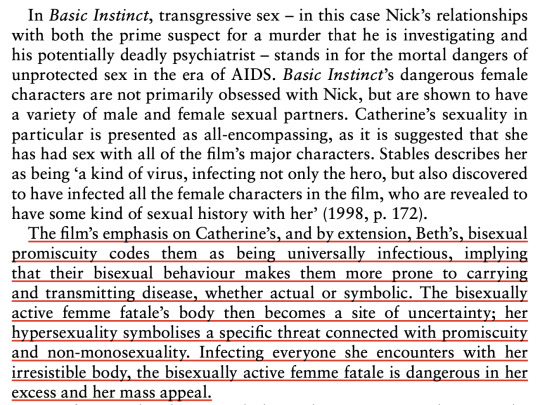
The Contemporary Femme Fatale: Gender, Genre, and American Cinema (ed. Katherine Farrimond, p. 105-6)
28 notes
·
View notes










